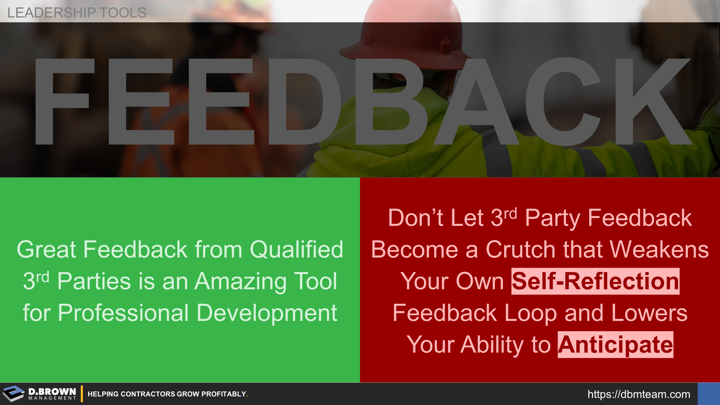Here are the common challenges many people face:
GIVING FEEDBACK
- Inability to give specific feedback that is actionable by the person receiving it. Telling someone they missed the basket is a waste, specific input about hand positioning and demonstrating is valuable.
- Discomfort giving someone feedback as if it were a judgement. Great feedback is 90% information and instruction.
RECEIVING FEEDBACK
- Taking it as criticism and not information to learn from.
- Not digging deeper to turn it into something truly actionable.
- Not weighting feedback properly. Look for the most experienced person for the particular task to give feedback, not the most convenient or friendliest.
- Using 3rd party feedback as a crutch that weakens the ability to build a good self-reflection feedback loop. When receiving any feedback from an experienced 3rd party, the first question should be “Why didn’t I already provide myself that feedback?”
We spend a lot of time with the teams of contractors helping improve their performance. Effective feedback loops are just one of those tools.

